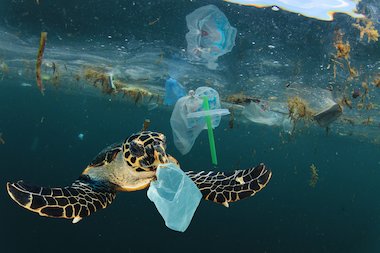Environmental Issues: topic summary
- Supports home learning
Add to My Folder
Our handy topic summaries can be used to support homework, as well as providing helpful collections of related resources for teachers to use in school or for parents to use for home learning.

Unless a number of environmental issues are addressed quickly the Earth will become a much more difficult place for people to live and for the plants and animals we share the planet with. We all have a responsibility and a duty to look after our planet. The worsening situation with regard to global warming, air and water pollution and the loss of natural habitats must be slowed down urgently. Global temperatures are increasing each year, sea levels continue to rise as ice-caps in the polar regions melt and the sea has become a dump for ever increasing amounts of rubbish, much of it non-biodegradable plastic. Over 80% of the Earth’s land surface is now directly affected by human activity. Many ecosystems are under attack. A quarter of the world’s coral reef has already been destroyed and deforestation is depriving the Earth of its ‘lungs’. (See also the section on Rainforests.)
There are many simple things that all families can do from home in order to improve the situation. These include:
- Re-using as many materials as possible without throwing them away after the first time.
- Increasing efforts to recycle as many materials as possible-paper, cardboard, plastic, glass, metal etc. (Your local council will have full details.) The United Kingdom recycles less than 20% of its rubbish at the moment with several million tonnes of waste going to landfill each year.
- Cutting down on the use of electricity and gas. Turning off appliances when they are not needed and reducing heating on warmer days.
- Switching to natural energy sources like solar and wind power.
- Reducing the need to use paper by receiving and storing information by more electronic means.
- Saving water wherever possible. Taking showers instead of baths, not letting taps run, using collected rainwater on plants.
- Using the car less often by car sharing, using public transport, walking or cycling, especially on short journeys.
Published 29 July 2020
Reviews
You need to be signed in to place a review.